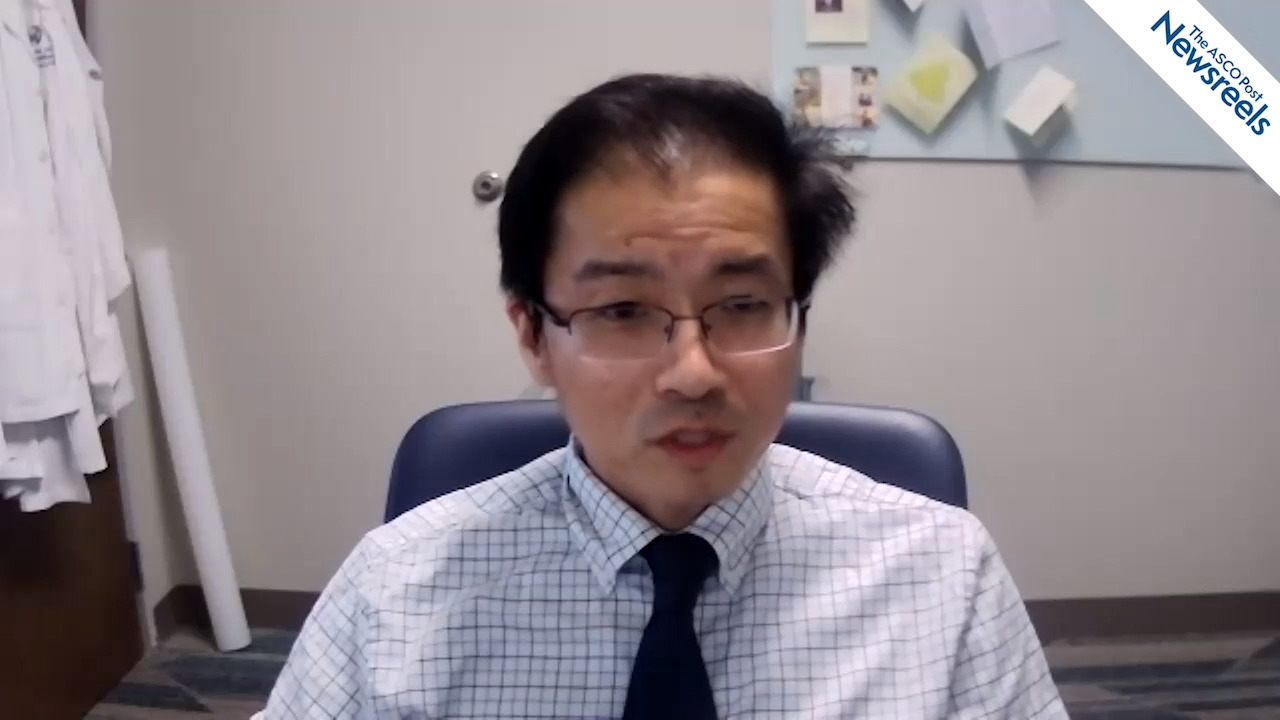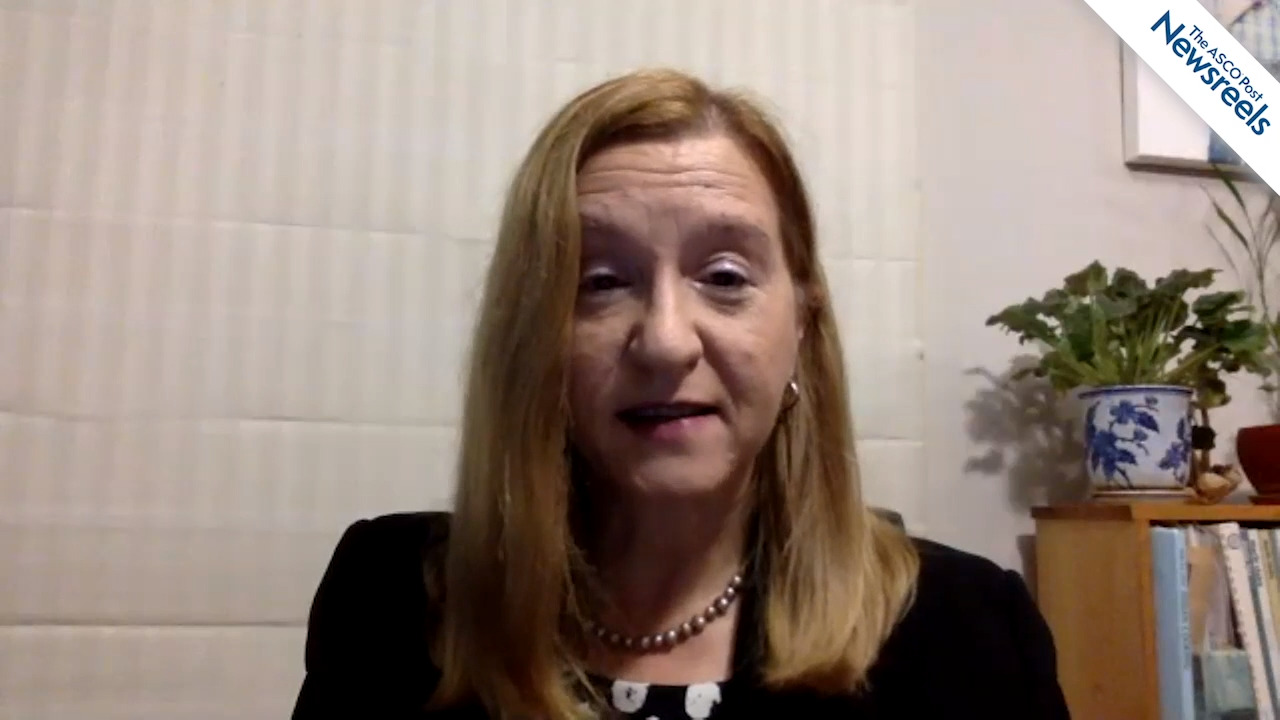Byoung Chul Cho, MD, PhD, on NSCLC: Amivantamab Plus Lazertinib for Treatment of Relapsed Disease
2021 ASCO Annual Meeting
Byoung Chul Cho, MD, PhD, of the Yonsei Cancer Center, discusses study results that showed treatment with the EGFR-MET bispecific antibody amivantamab plus the EGFR inhibitor lazertinib yielded responses in 36% of chemotherapy-naive patients with non–small cell lung cancer whose disease progressed on osimertinib. Genetic biomarkers may be able to identify patients most likely to benefit from the combination regimen (Abstract 9006).
The ASCO Post Staff
Neeraj Agarwal, MD, of Huntsman Cancer Institute at the University of Utah, discusses phase III data from the SWOG S1216 trial, which evaluated the clinical benefit of using androgen-deprivation therapy with either orteronel (or TAK-700, a CYP17 inhibitor) or bicalutamide in patients with newly diagnosed metastatic hormone-sensitive prostate cancer (Abstract 5001).
The ASCO Post Staff
Taiga Nishihori, MD, of the H. Lee Moffitt Cancer Center and Research Institute, discusses the outcome of a trial that explored maintenance therapy with ixazomib after allogeneic hematopoietic cell transplantation in patients with high-risk multiple myeloma. Toxicities unrelated to the maintenance treatment forced the trial to close prematurely (Abstract 7003).
The ASCO Post Staff
Linda R. Mileshkin, MBBS, MD, of the Peter MacCallum Cancer Centre, discusses phase III findings from the OUTBACK trial, which showed that adjuvant chemotherapy given after standard cisplatin-based chemoradiation for women with locally advanced cervical cancer did not improve either overall or progression-free survival (Abstract LBA3).
The ASCO Post Staff
Geoffrey J. Lindeman, MBBS, PhD, of Peter MacCallum Cancer Centre, discusses results from the phase II VERONICA study, which compared venetoclax plus fulvestrant with fulvestrant alone in women with estrogen receptor–positive, HER2-negative, locally advanced or metastatic breast cancer who experienced disease recurrence or progression during or after treatment with CDK4/6 inhibitor therapy (Abstract 1004).
The ASCO Post Staff
Priya Rastogi, MD, of the University of Pittsburgh, discusses results from the NRG Oncology/NSABP B-42 trial, which evaluated the utility of the 70-gene MammaPrint assay in predicting the benefit of extended letrozole therapy in patients who had completed 5 years of adjuvant endocrine therapy (Abstract 502).





